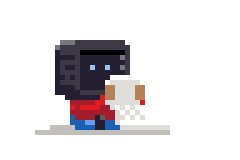Now that Toolbx offers built-in support for Ubuntu containers [1], adding an Ubuntu host to the upstream CI will help ensure that Toolbx continues to work well on Ubuntu. Ubuntu 22.04 is the latest long term support (or LTS) release [2] from Ubuntu, and is the latest Ubuntu version that GitHub provides runners for [3]. Ubuntu 22.04 only has Bats 1.2.1 [4], while Toolbx requires 1.7.0 [5]; and Shadow 4.8 [6], while Toolbx requires 4.9 because it needs libsubid.so [7,8]. Hence, newer versions of these dependencies need to be built to run the tests. The build flags for Shadow were taken from the Debian package [9]. A separate sub-directory inside $GITHUB_WORKSPACE [10] is used for Toolbx itself to prevent codespell from getting triggered by spelling mistakes in these dependencies themselves [11]. Unfortunately, the SHELL environment variable goes mysteriously missing from the runtime environment of the GitHub Actions workflow [12]. This breaks the 'create' and 'enter' commands, and therefore tests involving them can't be run until this is resolved. Meanwhile, running the CI on Ubuntu with a subset of the tests, is still better than not running the CI on Ubuntu at all. [1] Commit |
||
|---|---|---|
| .github | ||
| data | ||
| doc | ||
| images | ||
| playbooks | ||
| profile.d | ||
| src | ||
| test/system | ||
| .codespellexcludefile | ||
| .gitignore | ||
| .gitmodules | ||
| .mailmap | ||
| .zuul.yaml | ||
| CODE-OF-CONDUCT.md | ||
| CONTRIBUTING.md | ||
| COPYING | ||
| gen-docs-list | ||
| GOALS.md | ||
| meson.build | ||
| meson_options.txt | ||
| meson_post_install.py | ||
| NEWS | ||
| README.md | ||
| SECURITY.md | ||
| toolbox | ||
Toolbox is a tool for Linux, which allows the use of interactive command line environments for development and troubleshooting the host operating system, without having to install software on the host. It is built on top of Podman and other standard container technologies from OCI.
Toolbox environments have seamless access to the user's home directory, the Wayland and X11 sockets, networking (including Avahi), removable devices (like USB sticks), systemd journal, SSH agent, D-Bus, ulimits, /dev and the udev database, etc..
This is particularly useful on OSTree based operating systems like Fedora CoreOS and Silverblue. The intention of these systems is to discourage installation of software on the host, and instead install software as (or in) containers — they mostly don't even have package managers like DNF or YUM. This makes it difficult to set up a development environment or troubleshoot the operating system in the usual way.
Toolbox solves this problem by providing a fully mutable container within
which one can install their favourite development and troubleshooting tools,
editors and SDKs. For example, it's possible to do yum install ansible
without affecting the base operating system.
However, this tool doesn't require using an OSTree based system. It works equally well on Fedora Workstation and Server, and that's a useful way to incrementally adopt containerization.
The toolbox environment is based on an OCI
image. On Fedora this is the fedora-toolbox image. This image is used to
create a toolbox container that offers the interactive command line
environment.
Note that Toolbox makes no promise about security beyond what's already available in the usual command line environment on the host that everybody is familiar with.
Installation & Use
See our guides on installing & getting started with Toolbox and Linux distro support.


